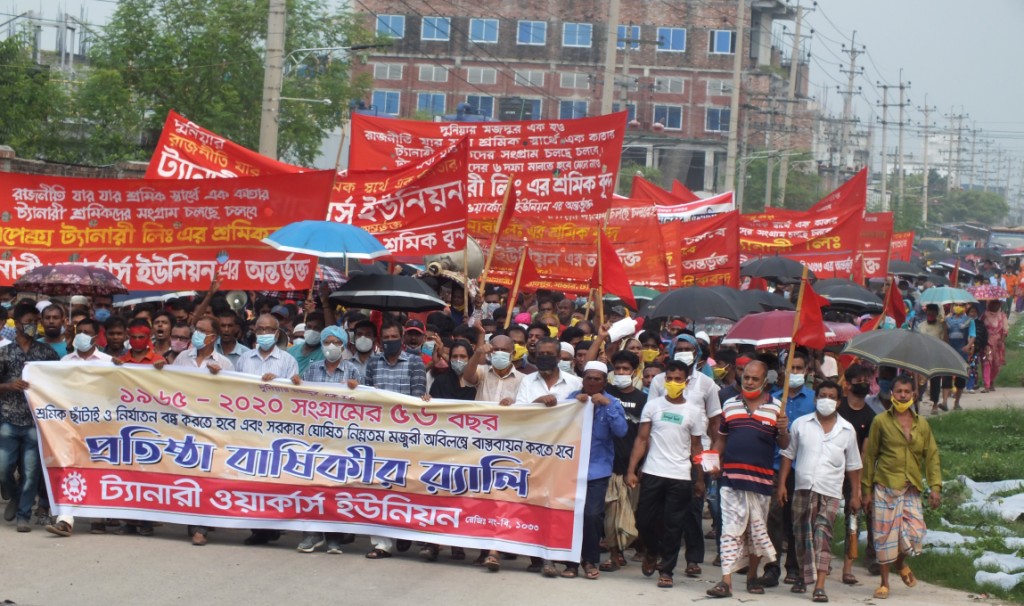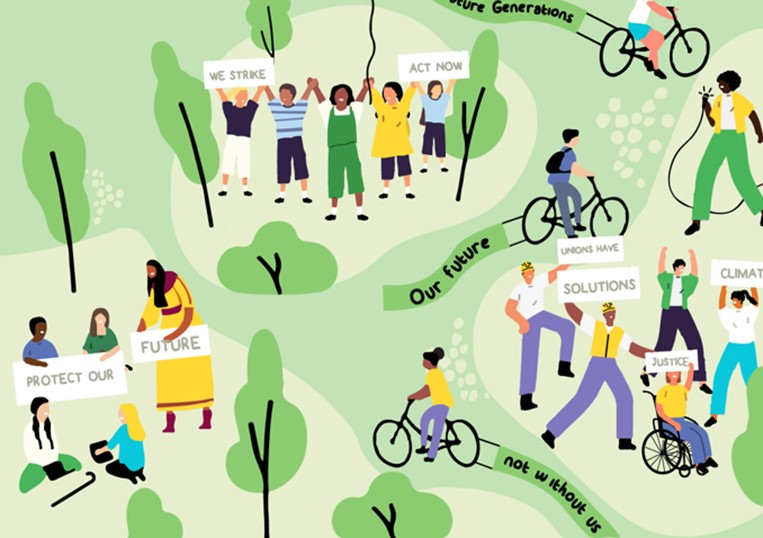Some 600 Maldivian fishers from the Bodukanneli Masveringe Union (BKMU) protested offshore from the capital, Male, December 10, demanding that the government of the island nation address 11 demands. Fishers say the government must address job safety and health...
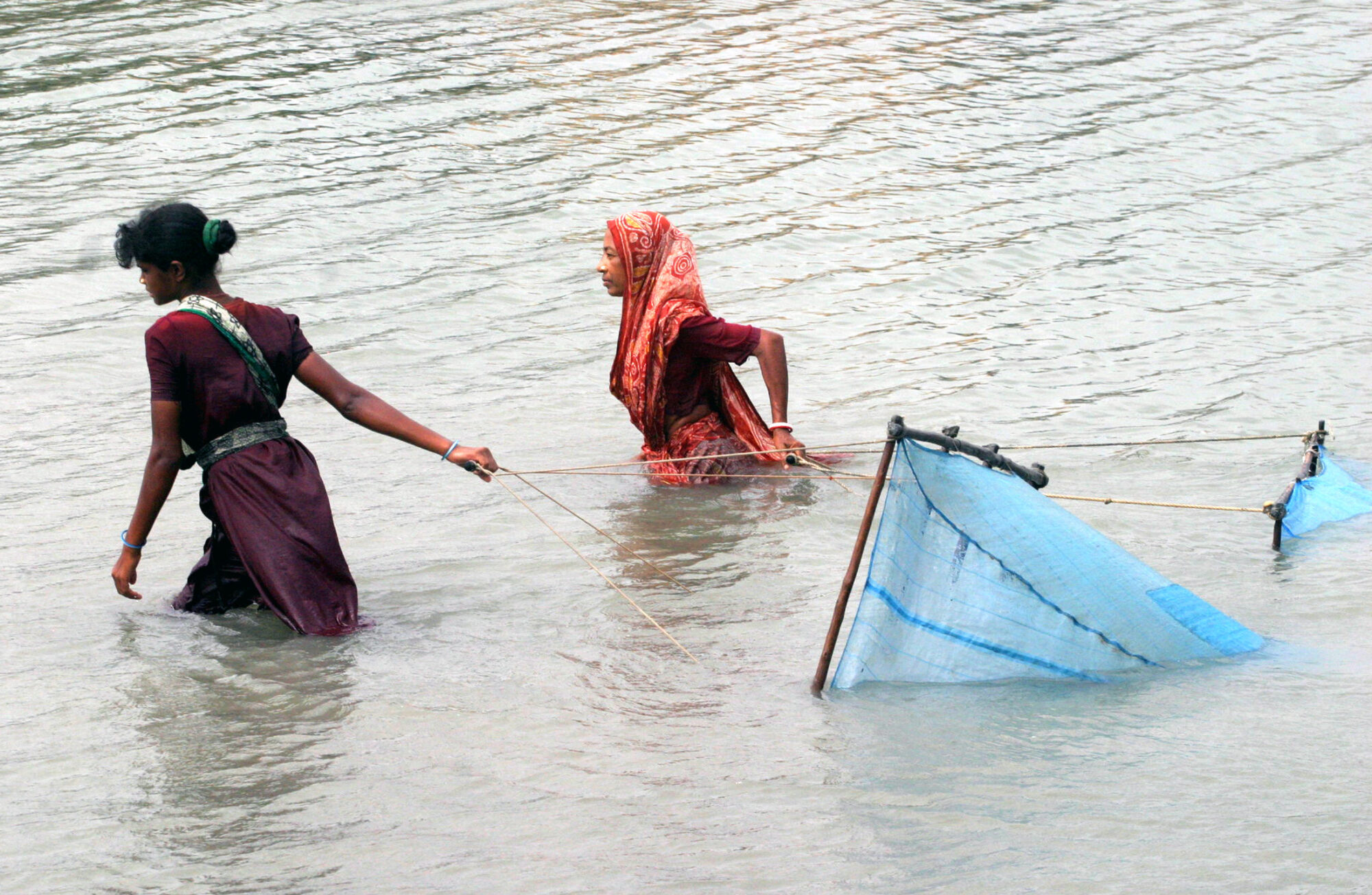
The livelihoods and safety of these women fishing shrimp from a river southwest of Dhaka are increasingly threatened by climate change. Given that 80 percent of Bangladesh’s land is low-lying floodplain, seas are rising and area cyclones are escalating in frequency and severity, one in every seven of the country’s people will be displaced by climate change by 2050. Credit: Reuters/Rafiqur Rahman– stock.adobe.com
The climate crisis impacts workers and their communities in a multitude of ways. Flooding, drought and extreme weather events push workers to migrate, often into low-wage jobs under dangerous conditions. Workers in highly polluting industries face the dual impacts of occupational health and safety hazards and environmental degradation, both of which put their families and communities at risk. Marginalized workers—including minority populations, workers with disabilities, women, youth, migrants and workers in the informal economy—are already experiencing some of the worst impacts of climate change and are often excluded from decision-making processes.
Workers and their unions are uniquely positioned to help build a global climate justice movement, bolstered by their support from, and participation in, broad-based coalitions as well as long-term experience in people-centered policy and legislative advocacy in their respective countries.
As governments and industries plan to transition to cleaner alternatives, workers and their unions must have a meaningful say in the process to ensure that a greener economy is also one that protects worker rights and advances decent work. The needs of workers and their communities must be at the center of climate-responsive policies and practices, including in designing a fair or just transition to a more equitable and sustainable economy as a way to mitigate the impacts of climate change and enable adaptation for impacted communities.
Our Approach
The Solidarity Center recognizes that addressing the climate crisis is critical to ensuring decent work and a strong labor movement in the future. In response, the Solidarity Center supports workers and their unions to:
- Develop worker-driven climate solutions and play a significant role in their implementation to protect hard-fought gains and advance worker rights in changing industries
- Use collective bargaining to advance cleaner, safer and more sustainable operations across sectors; and ensure an inclusive process that prioritizes the needs of workers and their communities in transitioning sectors.
- Build broader coalitions, securing the mutual commitment of climate, human rights and community organizations in the fight to win decent, unionized green jobs; build healthy, resilient and sustainable communities; and support worker rights
- Effectively participate in national, regional and global climate justice negotiations and hold policymakers and employers accountable for achieving a just transition to a cleaner economy that enables workers to enjoy their fundamental freedoms and rights; and
- Advance an enabling legal environment to achieve a just transition, recognizing the critical link between labor rights and environmental justice.
Our Programs
Solidarity Center initiatives to advance climate justice include:
- Legal research on the new forms of collective representation and collective bargaining necessary to attain a just transition, and, with the Solidarity Center’s International Lawyers Assisting Workers (ILAW network), litigation of cases and legal processes and advocacy that advance worker rights
- Following a convening of palm oil unions from Colombia, Honduras, Indonesia and Malaysia, with environmental partners, implementation of a strategic plan by labor leaders from those countries that addresses issues with common actors and challenges within the supply chain, and pursues advocacy avenues for worker protection demands and engagement in policymaking on climate-change mitigation measures
- A coalition-building program in Colombia, Indonesia, Nepal, South Africa and Ukraine that raises awareness within and between unions, environmental and community groups about the environmental impact of the extractive and energy sectors in their respective countries while identifying opportunities for coalitions to advocate for safe, sustainable employment within these sectors
- Publication and dissemination of a report on the intersection of climate change and migration in Bangladesh that highlights for policy makers in that country how climate-related salinization has diminished the ability to grow rice and demonstrates that many workers are forced to migrate in search of jobs elsewhere or seek lower paying jobs in the shrimp industry
Bangladesh: Unions Work to Secure Tannery Jobs
Union leaders and labor rights activists are demanding the government of Bangladesh secure jobs for tannery workers before taking punitive action against the industry for its role in environmental pollution. The demand was made at a discussion following the...
‘Climate Justice Is for Everyone,’ Say Unions
Climate justice activists are increasingly under attack across the globe by governments acting in concert with private interests, a trend that threatens civic freedoms for all, says the United Nation’s special rapporteur on the rights to freedom of peaceful assembly...
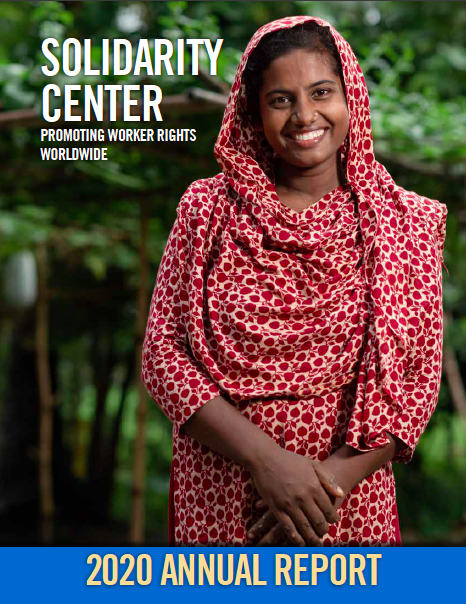
2020 Annual Report
Download here.
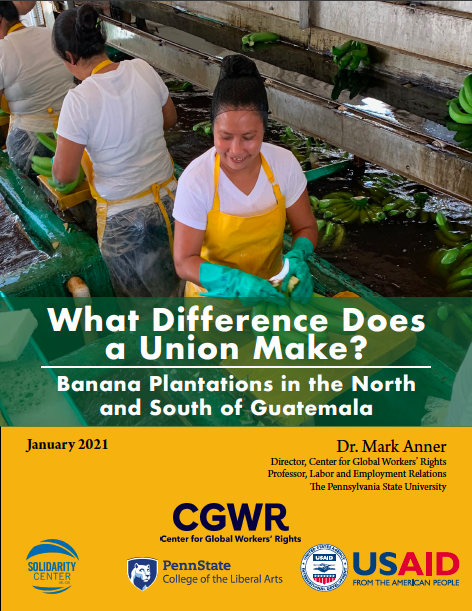
What Difference Does a Union Make? Banana Plantations in the North and South of Guatemala
Guatemalan banana workers without a union work longer hours and earn less than half than of those who are unionized, and report more cases of verbal and physical abuse. Download in English. Download in Spanish.
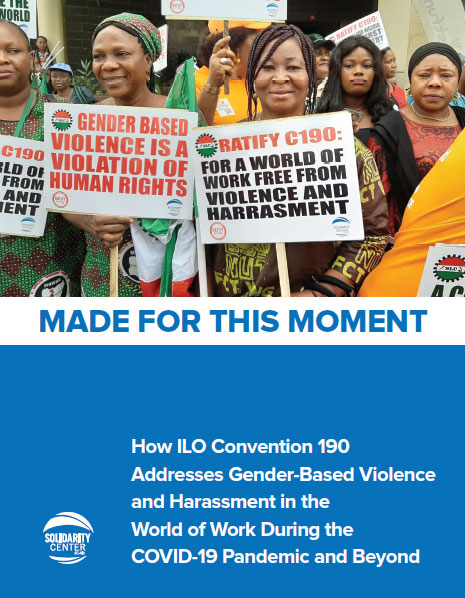
Made for this Moment: How ILO Convention 190 Addresses Gender-Based Violence and Harassment in the World of Work During the COVID-19 Pandemic and Beyond
This report highlights how C190, the first global treaty that recognizes the fundamental right to work free from gender-based violence and harassment (GBVH), addresses GBVH in the world of work and identifies concrete steps to address it. Read the full report here in...
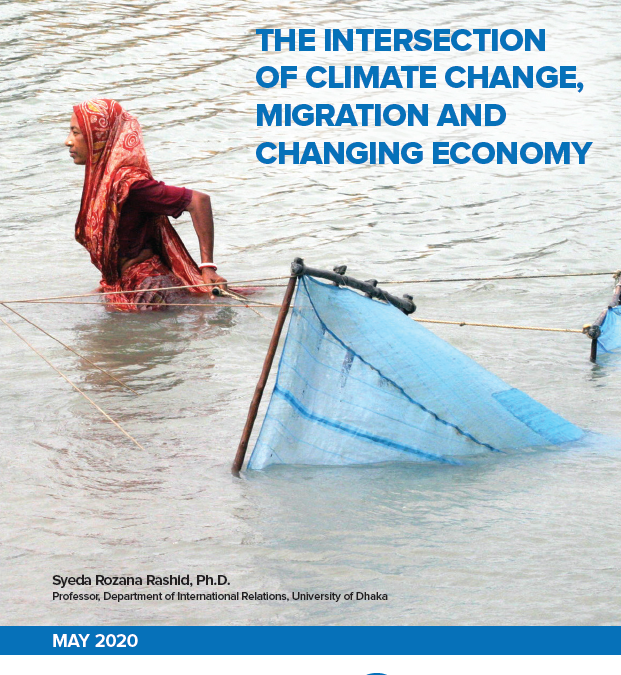
REPORT: CLIMATE CHANGE IN BANGLADESH DRIVES WORKER VULNERABILITY, POVERTY
This report, The Intersection of Climate Change, Migration and Changing Economy, explores the links among climate change, economic activities and migration in the coastal areas of Khulna and Jashore, Bangladesh, demonstrating its impact on the availability of decent...
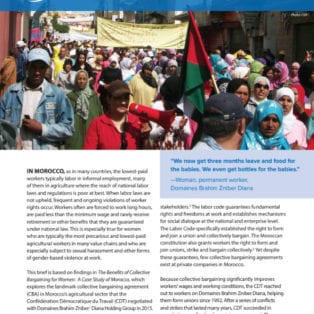
The Benefits of Collective Bargaining for Women Workers in Morocco
Download in English. Download in Arabic. This report was made possible through the generous support of the Ford Foundation.
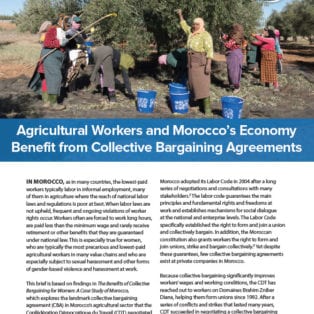
Agricultural Workers and Morocco’s Economy Benefit from Collective Bargaining Agreements
. Download in English Download in Arabic. This report was made possible through the generous support of the Ford Foundation.


